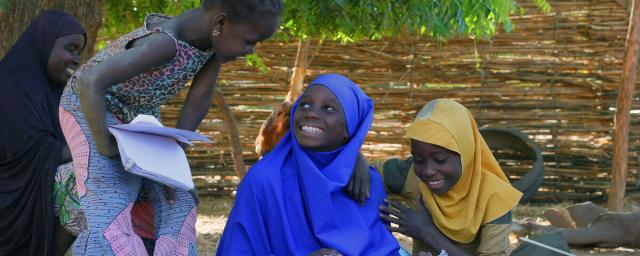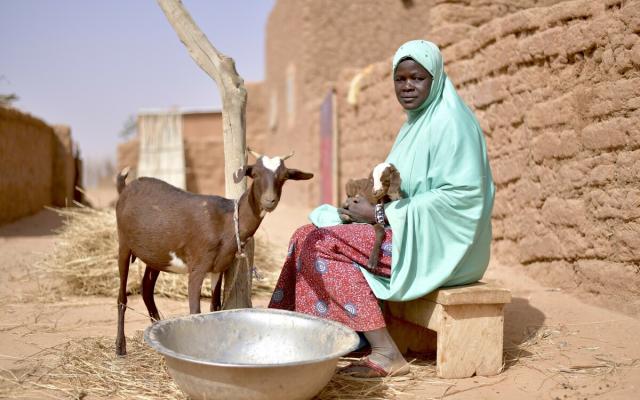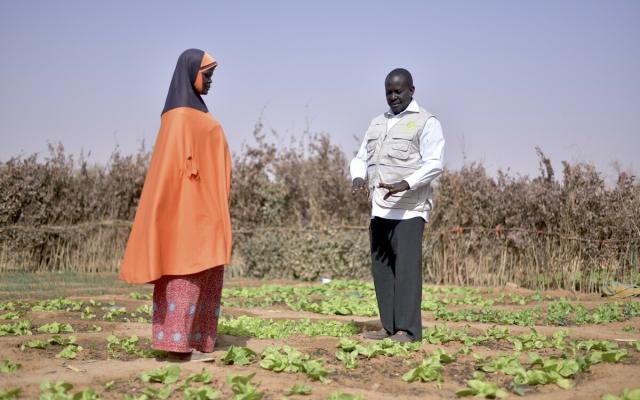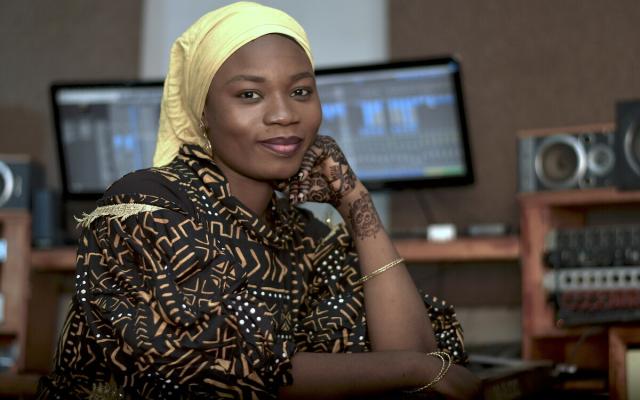
Children smiling at each other while sitting outside in the shadow with their schoolbooks. (Photo: Ibrahim Ousmane/Oxfam Novib)
Niger, one of the largest countries in West Africa, faces significant challenges related to climate crisis and political instability. Oxfam plays a vital role in addressing the consequences, in humanitarian, development, and advocacy work.

In Ouallam, Niger, the effects of climate change, leading to hunger crisis, are deeply impacting the life of Mariama, a mother of seven. (Photo: Moctar Tondi/Oxfam)
Challenges
Niger faces alarming rates of malnutrition, rising food prices, and limited access to basic services. Over 2.7 million people need humanitarian assistance. Opportunities exist through community mobilization and local governance initiatives aimed at improving resource management and accountability. However, the 2023 military coup has led to restrictions on civic space, complicating efforts to address these issues effectively.
Impact on People
The country’s humanitarian needs are exacerbated by recurrent droughts and flooding. Food insecurity leads to increased malnutrition rates among children, and women often bear the brunt of economic hardships. Cultural norms further exacerbate gender inequalities, restricting women’s participation in decision-making processes and leaving them more susceptible to the impacts of climate and economic instability.

Mariama (left) stands with Hassane Harouna (right), Oxfam Base Manager in Ouallam, Niger, on the plot of land she farms to survive. (Photo: Moctar Tondi/Oxfam)
Oxfam’s Role
Oxfam started operations in Niger in 1992. Our priorities include promoting food security, enhancing livelihoods, advocating for gender equality, and strengthening civil society engagement as well as advocating for measures against climate breakdown.
By focusing on community-led initiatives and capacity strengthening, we aim to support marginalized groups, ensuring that they can participate actively in shaping policies that affect their lives. Oxfam works with a pool of local partners to strengthen humanitarian localization and mobilize civil society actors for better governance.

Oumarou Hega Nourrath, slam artist and coordinator of the NGO Debbo'arts, organizes festivals and debates in Niger that bring together young girls from all regions of the country to discuss a range of issues affecting women's well-being. Among them, we find: Art as a tool to combat violent extremism. (Photo: Moctar Tondi/Oxfam)
Looking Ahead
It is essential to enhance collaboration with local authorities and civil society organizations, ensuring sustained funding and support for programs targeting food security, health, and education. Continued advocacy for gender-sensitive policies and practices will also be critical in addressing systemic inequalities in Niger.